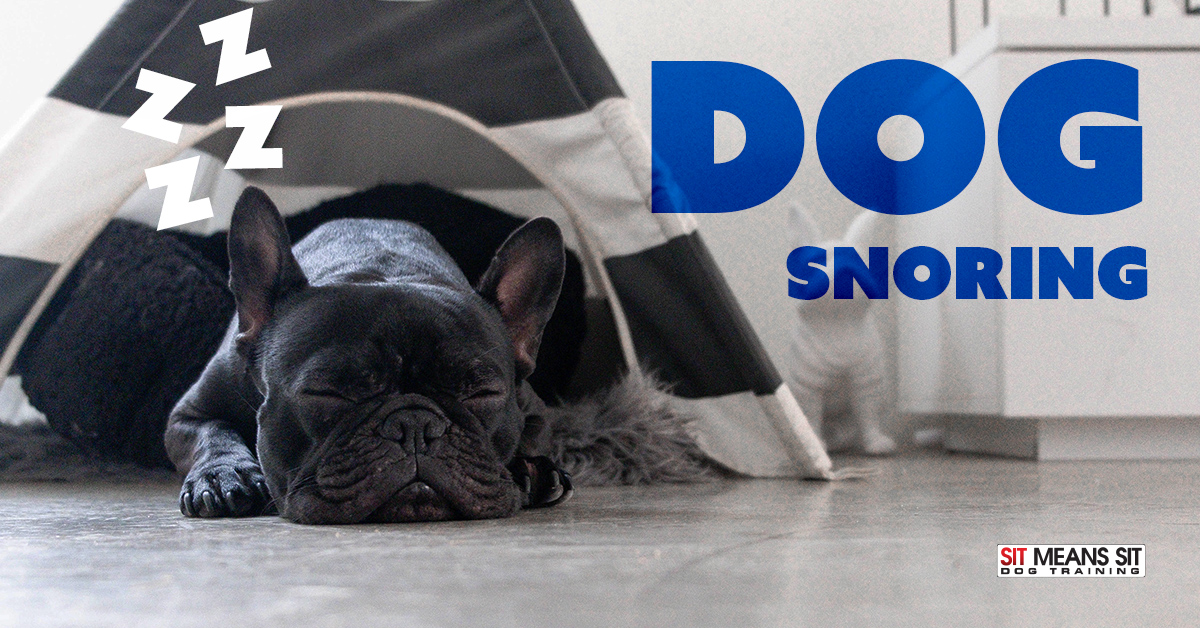
Is It Normal for My Dog to Snore?
As the saying goes, when it rains it pours. And when our dogs snore, they snore loudly! While some snoring is endearing, most of the time, our dogs’ snores are loud, long, and pretty annoying. When humans snore loudly, it’s usually a sign of sleep apnea or trouble breathing. But what about our dogs? Is their snoring normal? We have the answers to all of your questions about your dog’s snoring tendencies below.
Dog Breed Matters
As you can probably imagine, some dog breeds are more predisposed to snoring than others. The likelihood of your dog snoring depends on your dog’s skull size and snout length. Dogs with broad, short skulls and shorter snouts have very short breathing passages and therefore end up snoring more often than other dogs. English bulldogs, Shih Tzus, and Pugs are examples of dogs that are brachycephalic, meaning they have the shorter skulls and shorter snouts that often lead to snoring. Many of these dogs snort a lot when they breathe, and their short skulls and snouts can lead to breathing complications. If you own one of these dog breeds, you shouldn’t be too surprised when they’re snoring while sleeping. If your dog isn’t brachycephalic, there are probably other factors at play that are contributing to your dog’s snoring.
Breathing Is the Key Factor
When it comes to dog snoring, breathing is the key factor in their snores. As with humans, snoring in dogs is generally a result of restricted air movement in the nasal passageways and throat. This can result from dogs sleeping on their backs or in a slightly contorted position. If your dog has been suffering from a cold or some illness, this could be cause for their trouble breathing as well. They may also be reacting to dust or smoke in the air. These allergens can irritate your dog’s air passageways and lead to air blockage.
Unlike humans, sleep apnea is extremely rare and likely not the reason for your dog’s snoring. However, if your dog’s snoring persists, check in with your vet and ensure that your dog’s airways are clear and free of debris. You may also consider getting your dog a new dog bed to ensure that they’re sleeping in a position that allows them to breathe freely.
Other Possible Causes of Snoring
Dog breed and breathing styles are the most common causes of snoring in dogs, but some other explanations of snoring in dogs include hypothyroidism or excess weight. Hypothyroidism is when the thyroid gland doesn’t produce enough of the hormone that controls your dog’s metabolism. Resolving this issue is simple, but it does require your dog to consistently take medication. Excess weight is another explanation. If your dog is overweight, extra fat can collect in the throat and block airways. This results in snoring in your dog.
While your dog’s snoring may be consistent and harmless, if your dog has never snored before and all of a sudden starts snoring, you should contact your vet to ensure that the cause of their snoring is not something more serious. Soon you’ll all be sleeping in silent, blissful peace.
